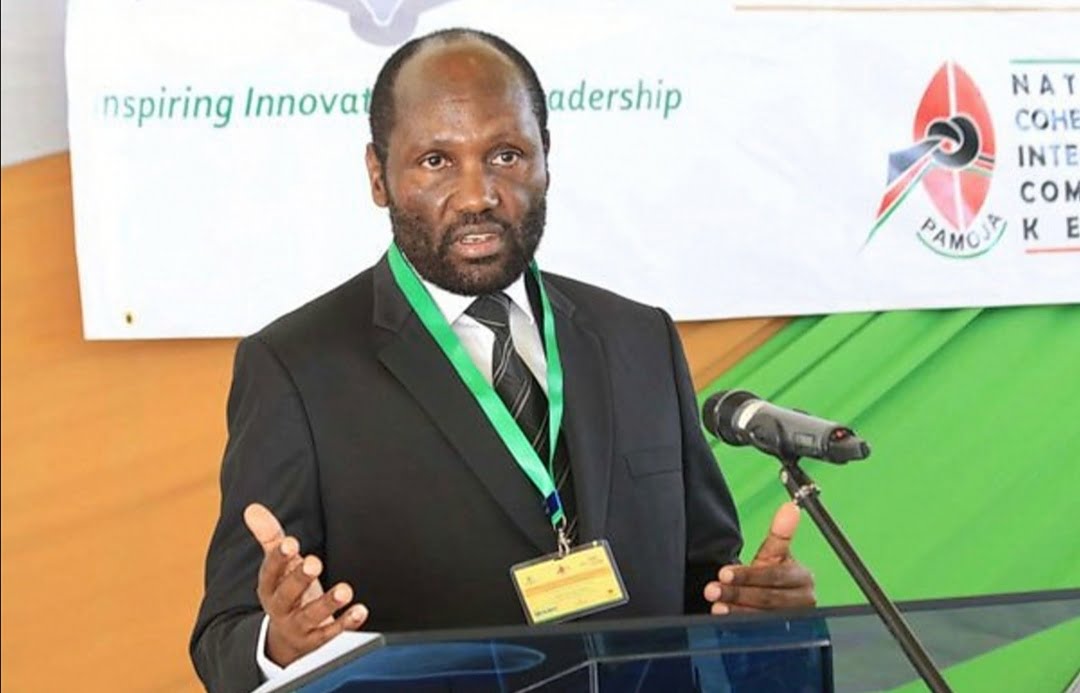By James Wakahiu
Karatina University is soaring up in its academic programmes so as to produce business-minded graduates ready to explore self-employment in an economy where thousands of graduates remain jobless several years after graduation.
In a programme supported by DAAD (German Academic Exchange Service) that also involves collaboration with Dedan Kimathi University of technology (DEKUT), Chuka University and University of Saarland from Germany, Karatina University has made the entrepreneurship course compulsory across all academic programmes.
“This means that, all graduates of Karatina University have some idea on the concept of entrepreneurship,” prof. Mucai Muchiri, the vice chancellor, told an international conference on entrepreneurial universities in Kenya held recently at Mount Kenya University main campus.
Prof Mucai said given the high levels of unemployment, it was necessary to introduce students to the concept and skill of entrepreneurship.
“In the school of business, there is a bachelor of science degree in entrepreneurship. The school has also revised the entrepreneurship curriculum so that its lecturers can use an action- based method which is rooted in a specific set of practices targeting all types of students”. He said
Karatina University has continuously been sensitizing its teaching staff and students on the need to have an entrepreneurial mindset, change of attitude towards self-employment and problem solving approaches in a firm.
Members of the academic staff have been sensitized on the entrepreneurial university concept, both at the school/faculty level by the respective entrepreneurship champions and DEPUK workshops which inform them of what activities need to be undertaken for Karatina University to be considered as an entrepreneurial university.
Prof. Mucai informed the participants that, an entrepreneurial university is a university that contributes and provides leadership for creating entrepreneurial thinking, actions, institutions and entrepreneurship capital.
The concept of the “entrepreneurial university” is a major driver for self-development and innovation and as an appropriate response to succeeding in highly turbulent and unpredictable markets the concept of entrepreneurial university is gradually being adopted in Karatina University.
Once completely adopted, it will enable the institution to encourage, nurture and support entrepreneurship activities amongst students and the staff (both teaching and non-touching).” He said
He was speaking at Mount Kenya University (MKU) during an international conference on entrepreneurial universities attended by five German universities and five Kenyan universities.
The blended forum that was held at MKU’s Mwai Kibaki Convention centre at the main campus in thika town attracted attendance from both in-person participants and virtual participants.
The meeting provided a platform through which collaboration for entrepreneurial universities (CEPU) and developing entrepreneurial universities in Kenya (DEPUK) projects disseminated their findings on possible toolkits to creating entrepreneurial universities in Africa as well as demystifying an entrepreneurial university in a dynamic world.
The meeting was jointly organized by (CEPU) and (DEPUK) under the theme, “Entrepreneurial Universities in Kenya”, and was funded by the German academic exchange service (DAAD) and German’s ministry for economic cooperation and development.
Participants came from Germany’s Bonn Rhein-Sieg University of applied sciences, Leuphana University, University of Leipzig, Wismar University of applied sciences and University of Saarland.
Apart from MKU and Karatina University other local universities were Kenyatta University, Chuka University and Dedan Kimathi University of technology.
On joining the project in 2018, and following consultations with several German and Kenyan universities, Karatina University team formed collaboration with Chuka University and Dedan Kimathi University of technology (DEKUT) from Kenya and Saarland University from Germany.
Delegates from across the divide were taken through a training on the concept of entrepreneurial university and a call by DAAD for partnerships of Kenyan and German universities to be formed with the aim of writing proposals and applying to be funded to develop model universities in Kenya.
The goal was to develop entrepreneurial universities in Kenya to train lecturers in competency-based teaching formats.
The expected result was to increase student’s job market orientation/marketability as well as to develop and enhance innovativeness.
“We want to increase idea development, incubation and business start-ups and to improve communication between university and enterprises/industry,” Prof Mucai said.
The university through its appointed DEPUK project coordinators and champions has developed a roadmap for elevating the university to “an entrepreneurial university” status.
The university plans to train all its staff and students on the overall concept of entrepreneurial university and the need to be entrepreneurial.
A university incubation hub project is underway and start-up competitions will be held every academic year.
As part of a series of workshops under developing entrepreneurial universities in Kenya (DEPUK) project, the first start-up weekend was organized in September 2019 and brought together 60 students from three Kenyan universities (20 students each) with innovative business ideas.
Entrepreneurship champions and project coordinators from each of the three Kenyan universities offered the necessary support throughout the start-up competition weekend.
Business coaches and mentors had been identified, from the industry, the 3 Kenyan universities and university of Saarland whose role was to guide the start-up entrepreneurial teams in developing realistic business ideas intended for pitching.
Investors and partners were also present during the event.
Eight innovative business ideas from Karatina made it to the final.
The start-up weekend competition was a learning platform and an interactive session where students from various Kenyan universities showcased their ability to think in an entrepreneurial way, acquire entrepreneurial skills, develop both business and social networks and understand how entrepreneurs operate.
According to Prof. Wanjau, the DEPUK co-ordinator at Karatina University the participants were exposed to a unique entrepreneurial situation that required them to acquire an entrepreneurial attitude and ego.
“It is through creation of new ventures that unemployment will reduce and new products will be introduced in the market.” He said
Meanwhile, the university, through its DEPUK project team is in the process of developing an entrepreneurial curriculum that going forward, the university lecturers will be able to integrate the its concept in course delivery.
The entrepreneurship champions at the university are in the process of completing an incubation hub policy.
“This document will form basis for standard operation process at the incubation hub,” Prof Mucai said.
Additionally, the university is in the process of acquiring fabrication laboratory (Fablab) equipment through DEPUK project, where prototypes developed by students will be nurtured, thus allowing them to develop an entrepreneurial mindset.
The Karatina University innovation hub (karu i-hub) will serve as a launch pad for start-ups and run an innovation week which will allow participants to showcase their projects.
This hub will treat patenting, licensing and commercialization more like a service for researchers and start-ups.
In conclusion, Prof Mucai thanked DAAD and University of Saarland for the support they have provided for the success of the DEPUK project.
“It is through your entrepreneurial leadership and guidance that the 3 Kenyan universities in the DEPUK project have started the journey of being entrepreneurial universities in this part of Africa,” he said.






